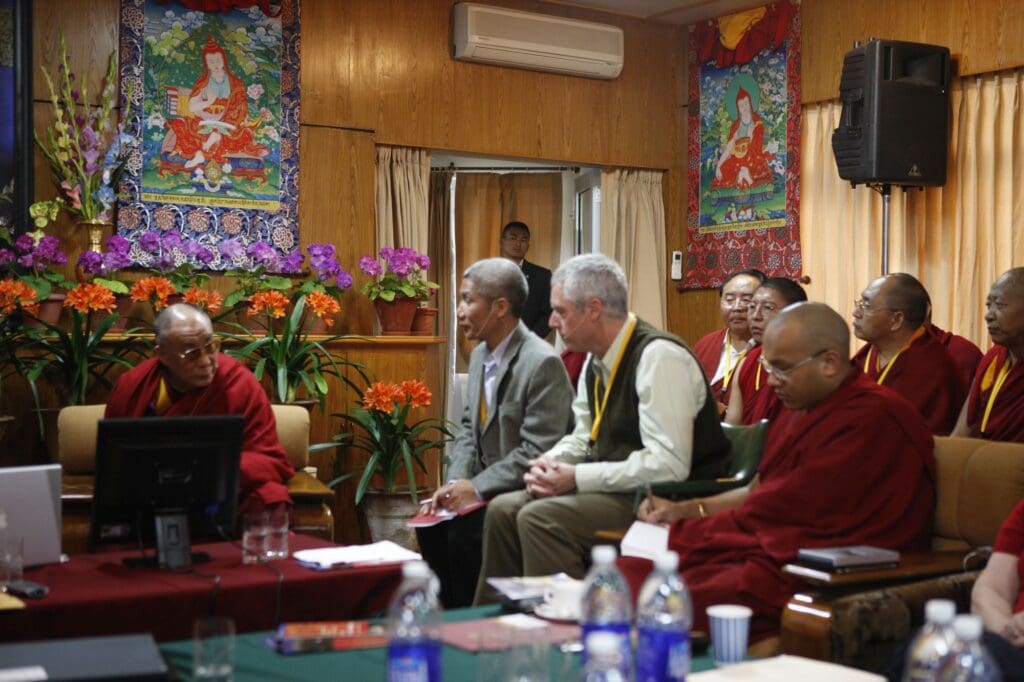Filmed during Mind & Life Institute’s “Mind & Life XVIII: Attention, Memory, and Mind” on April 6-10, 2009.
Mental Processes for Attention and Cognitive Control in Children and Adolescents
SPEAKER: Adele Diamond
Attentional control, self-regulation, and inhibitory control are not immutable. They can be improved even in children as young as 4–5 years, in regular classrooms, with regular teachers, without special equipment. First we will explore why inhibitory control is so critically important, especially during development. A child may know what he or she should do, and want to do, but still not be able to act accordingly because of insufficient inhibitory control. Adults may not appreciate how inordinately difficult inhibition is for young children because it is so much less taxing for us. The educational practices that improve attentional control and self-regulation not only lead to better academic outcomes, but they will also reduce the incidence and severity of mental health disorders where poor self-regulation is at the core (such as ADHD and addiction). Many issues are not simply education issues or health issues; they are both. Activities that often get squeezed out of school curricula, including the arts and physical exercise, are excellent for developing attentional control, self-regulation, and inhibitory control, and thus can be critical for success in school and in life. Improvement of critical skills need not be painful; indeed the evidence shows that children who spend more time in supervised play at school perform better on objective academic outcome measures than those who spend more time receiving direct academic instruction. Questions to be discussed are: what are traditional Tibetan Buddhist insights about training attentional control in young people? What are the main modalities for doing this? Is there any sense of a “developmentally appropriate” set of contemplative activities for children and adolescents in the traditions?
The Utility of Improving Attention and Working Memory with Mindfulness-Based Training
SPEAKER: Amishi Jha
Attention is the ability to select information that is important for present-moment goals while being undistracted by irrelevant information. Working memory is the ability to maintain and use selected information over time. Individuals vary in their capacity to engage attention and working memory which is quite limited and prone to fatigue over time. Two features of this capacity, in addition to its fragile nature are that: 1) An individual’s attention and working memory capacity changes over the lifespan getting better from childhood to adulthood and then degrading with advancing age. 2) Those with more capacity are better able to control their emotions and manage internal and external turbulence better than those with less capacity.
Is it possible to improve attention and working memory capacity to buffer against normal decline in functioning with advancing age? In our studies investigating mindfulness-training we find that both long-term and intensive practice in a retreat
context, provide older adults (mean age= 52 years) with a protective ‘reserve’ in their capacity so that their performance is very similar to that of younger adults with no mindfulness-training. Does improving attention and working memory have broader benefits? That is, how might improving working memory capacity help or interact with the cultivation of virtuous qualities such as patience, nonreactivity, emotional balance, and compassion? We have found that there is a direct relationship between the amount of time in which one engages in mindfulness-exercises and the degree of improvement in working memory capacity. This improvement in capacity then determines the degree of reduction in negative mood over the course of training. These results suggest that improvements in attention and working memory that result from mindfulness-training may not only be useful in and of themselves (e.g., to protect against normal aging), but they may be critical stepping stones for broader benefits such as improving mood. Questions for discussion include: are improvements in attention and memory discussed as part of the meditation training tradition in Tibetan Buddhism. What is the role of memory in contemplative development? Is there evidence in the tradition of elders showing extremely good memory given years of practice?
PANELISTS:
His Holiness the 14th Dalai Lama
Shaun Gallagher
Rupert Gethin
Thupten Jinpa
David Meyer
Elizabeth Phelps
Cliff Saron
Anne Treisman
B. Alan Wallace
Participants

Amishi Jha, PhD
University of Miami
Convening Faculty, Fellow, Grantee, Planning Committee Member, Research and Programs Council Member



